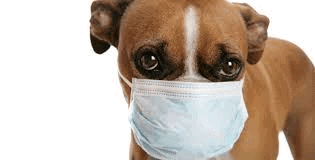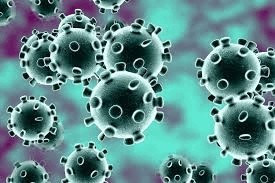
Here’s some key information about COVID-19:

- The that causes the recent Coronavirus COVID-19 is a SARS virus (which is also a Cornia virus)
- Person-to-person spread has been reported in numerous countries, including the United States. Some popular international destinations, including the United States, also appear to have community spread.
- On Thursday, February 27, Hong Kong’s Agriculture, Fisheries, and Conservation Department (AFCD) reported that a pet dog had tested “weak positive” for SARS-CoV-2. The dog’s owner recently tested positive for the virus and is suspected to have transmitted it to the dog
- Experts from the School of Public Health of the University of Hong Kong, the College of Veterinary Medicine and Life Sciences of the City University of Hong Kong, and the World Organization for Animal Health (OIE) believe the pet dog may have a low-level of infection with the virus. This pet dog is one of two pet dogs currently under quarantine in separate rooms in a facility at the Hong Kong Port of Hong Kong-Zhuhai-Macao Bridge; the second pet dog has had negative results of tests for the virus but authorities are being cautious as the pet’s owner is a confirmed positive case.The pet dogs are being cared for and neither has shown any signs of being ill with COVID-19. Furthermore, infectious disease experts and multiple international and domestic human and animal health organizations (CDC, OIE, WHO) agree there is no evidence at this point to indicate that pets can spread COVID-19 to other animals, including people.
- While officials have said this may be a case of human-to-animal transmission, this is still speculative and further testing is being conducted.
- Out of an abundance of caution, it is recommended that those ill with COVID-19 limit contact with animals until more information is known about the virus.
Have another member of your household take care of walking, feeding, and playing with your pet. If you have a service animal or you must care for your pet, then wear a facemask; don’t share food, kiss, or hug them; and wash your hands before and after any contact with them.
General Transmission Information
- Transmission occurs when there is contact with an infected person’s bodily secretions, such as saliva or mucus droplets in a cough or sneeze.
- There are currently no antiviral drugs recommended or licensed by FDA to treat COVID-19, and there is no immunization available.
- For most people in the United States, the immediate risk of being exposed to SARS-CoV-2 is believed to be low, but the CDC considers the virus a serious public health threat.
- The best way to avoid becoming ill is to avoid exposure to the virus. Taking typical preventive actions is key.
- As always, careful handwashing and other infection control practices can greatly reduce the chance of spreading any disease.


